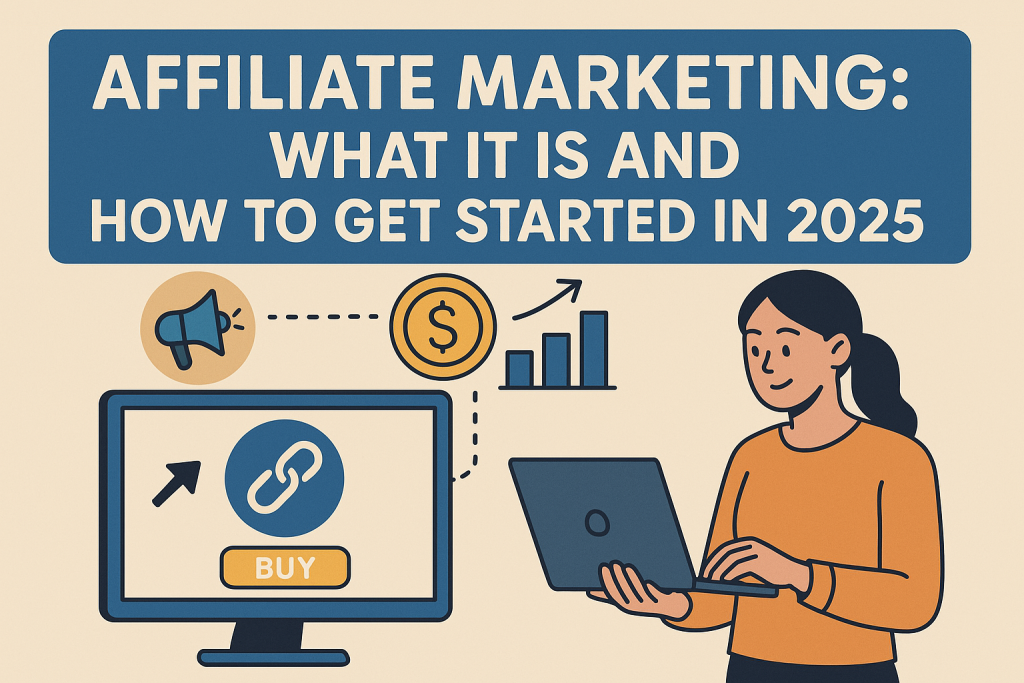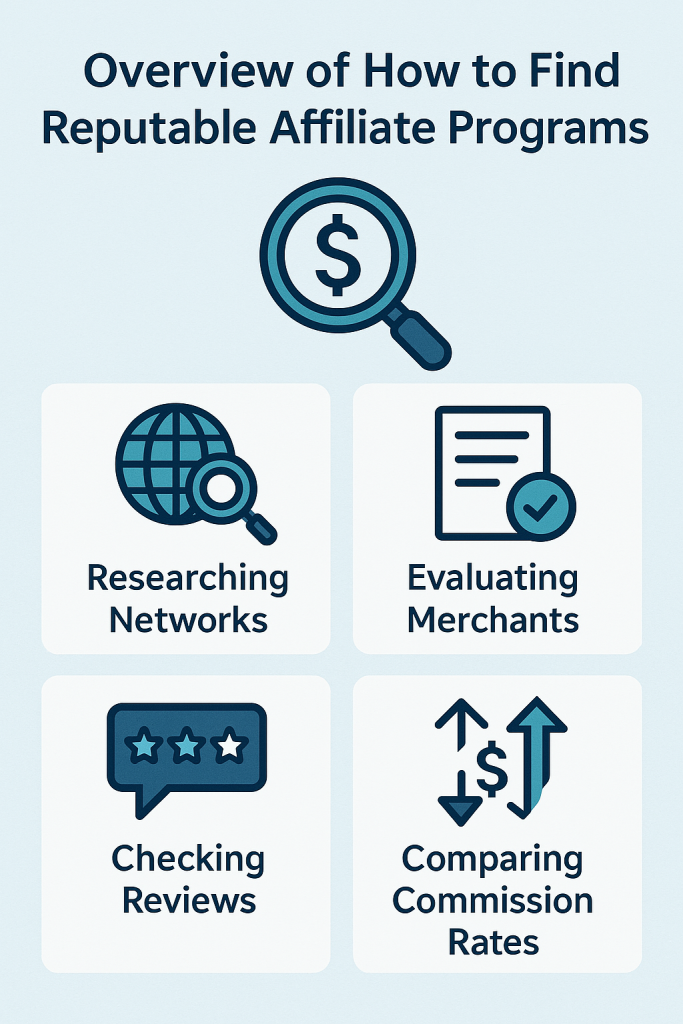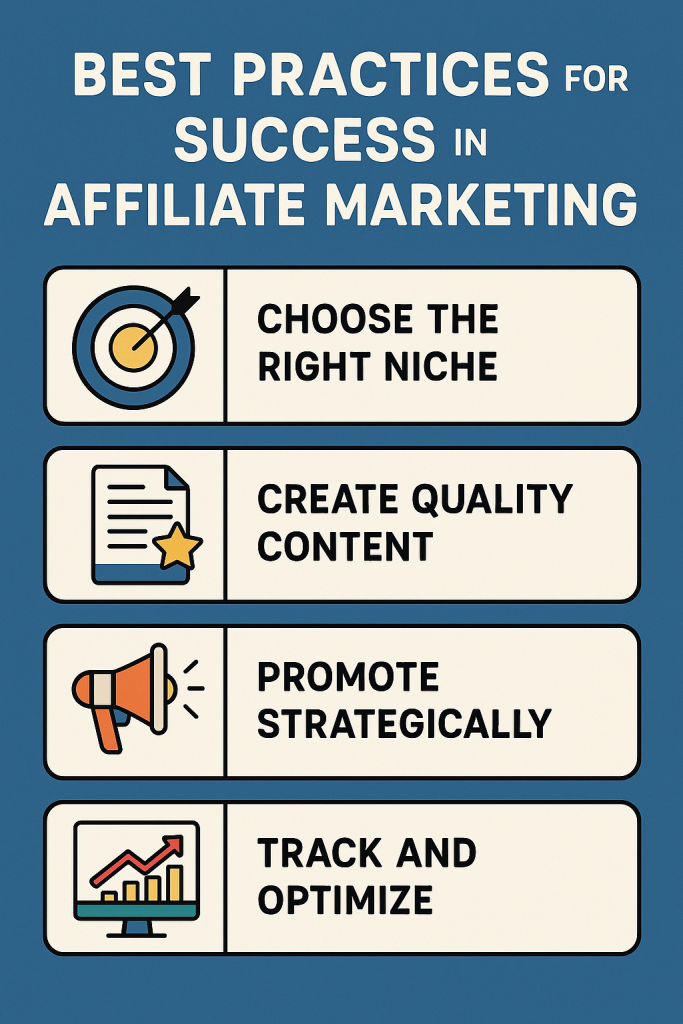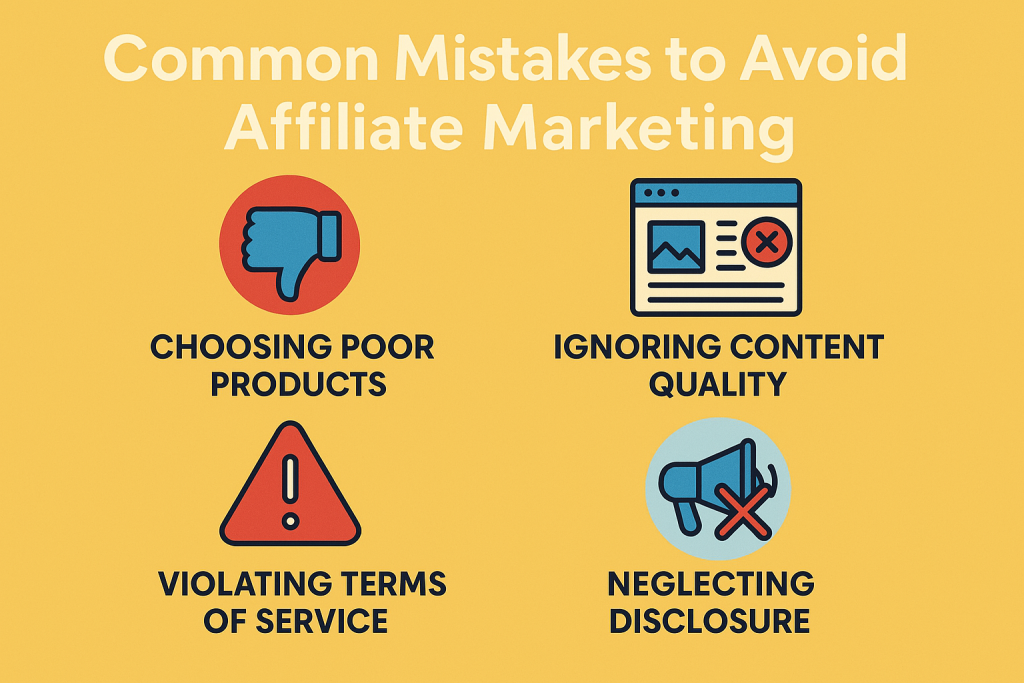
Introduction
Welcome to the world of affiliate marketing! If you’ve ever wondered how people make money online without creating their own products, look no further. Affiliate marketing is a popular and effective way to earn money by promoting products and services from various companies. In today’s digital economy, where everything is just a click away, affiliate marketing has become a crucial avenue for businesses and individuals alike. This post aims to educate beginners on the basics of affiliate marketing, guiding you through its concepts, benefits, and how to take the first steps toward becoming a successful affiliate marketer.

At its core, affiliate marketing is a performance-based marketing strategy where an individual (the affiliate) promotes a company’s products or services and earns a commission for every sale or action generated through their promotional efforts. It’s like being a digital middleman who connects consumers with brands while earning a slice of the pie for your efforts.
Key Components: Affiliates, Merchants, and Consumers
In the affiliate marketing ecosystem, there are three main players:
- Affiliates: These are individuals or businesses that promote products or services. They use various channels such as blogs, social media, and emails to recommend products to their audience.
- Merchants: These are the companies that create the products or services being promoted. They rely on affiliates to reach a broader audience and drive sales.
- Consumers: The end-users who purchase products or services. They often rely on reviews and recommendations from affiliates to make informed buying decisions.
How Affiliate Marketing Works: A Simple Overview
Here’s how the process generally works: The affiliate signs up for an affiliate program provided by the merchant. Once accepted, they receive a unique affiliate link that tracks their referrals. They then promote the link through their chosen channels. When a consumer clicks on the link and makes a purchase, the merchant tracks the sale back to the affiliate and pays them a commission based on the agreed terms. Simple, right?
Benefits of Affiliate Marketing

Affiliate marketing comes with a plethora of advantages, making it an attractive option for anyone looking to monetize their online presence.
Low Startup Costs Compared to Traditional Businesses
Starting an affiliate marketing business requires minimal investment compared to launching a physical business. There’s no need to worry about inventory, warehousing, or fulfilling orders. This makes it accessible to anyone looking to earn extra income without breaking the bank.
Flexibility in Working Hours and Location
One of the most appealing aspects of affiliate marketing is the freedom it offers. You can work from anywhere in the world and set your own hours. Whether you want to work in your pajamas at home or while sipping coffee at a beach cafe, the choice is yours!
Once you’ve established your affiliate links and content, they can continue to generate income even when you’re not actively promoting them. This means that you can potentially earn money while you sleep, or as we like to say, while you’re out living your best life!
Access to a Wide Range of Products and Services to Promote
With countless affiliate programs available, you can choose to promote products and services that align with your interests and audience. Whether it’s skincare, tech gadgets, or online courses, the options are virtually limitless.
Getting Started with Affiliate Marketing

Are you ready to dive in? Here’s a step-by-step guide to help you get started on your affiliate marketing journey!
The first step in your affiliate marketing adventure is selecting a niche. This is a specific area or category that you’re passionate about and have knowledge of. Picking the right niche is vital because it determines the audience you’ll attract and the products you’ll promote.
Importance of Passion and Knowledge in Choosing a Niche
Choose a niche that excites you! If you’re passionate about gardening, travel, or health and wellness, you’ll find it easier to create engaging content and connect with your audience. Additionally, having knowledge in your chosen niche will establish you as an authority, making it easier to gain the trust of potential customers.
- Health and wellness
- Personal finance
- Fashion and beauty
- Technology and gadgets
- Travel and adventure
Step 2: Find Affiliate Programs
Once you’ve chosen your niche, it’s time to find reputable affiliate programs. Many companies offer affiliate programs, but you want to partner with those that will provide you with the best experience and rewards.
Overview of How to Find Reputable Affiliate Programs

Start by searching for affiliate programs related to your niche. Check the websites of companies you already love and look for links that say “Affiliate Program” or “Join Us.” You can also join affiliate networks, which connect affiliates with various merchants.
Comparison Between Networks (e.g., Amazon Associates, ShareASale, ClickBank)
Here are a few popular affiliate networks:
- Amazon Associates: One of the largest and most recognized programs. It offers a vast range of products to promote.
- ShareASale: A popular network with thousands of merchants across various niches.
- ClickBank: Focuses on digital products, making it ideal for bloggers in the online education space.
Tips for Evaluating Programs’ Commission Structures and Terms
When evaluating affiliate programs, consider the following:
- Commission Rate: How much will you earn per sale or action?
- Cookie Duration: How long will the affiliate link track the consumer’s actions?
- Payment Terms: How often will you be paid, and what is the minimum payout threshold?
Step 3: Create a Platform for Promotion
Now that you’ve selected a niche and found affiliate programs, it’s time to create a platform to promote your products. Your platform could be a blog, social media account, or even a YouTube channel.
Different Platform Options (Blogs, Social Media, YouTube)
Your choice of platform will depend on your skills and where your target audience spends their time. Blogs are great for in-depth content, while social media is perfect for quick tips and engaging visuals. YouTube is an excellent option for those who are comfortable in front of the camera and want to create video content.
Importance of Building an Audience Before Promoting Products
Before you start promoting products, focus on building a loyal audience. Engage with your readers or followers by providing valuable content that informs or entertains them. Once they trust you, they’ll be more likely to click on your affiliate links.
Basic Tips for Creating Engaging Content that Resonates with Your Audience
Here are some tips to create engaging content:
- Know Your Audience: Understand their needs, preferences, and pain points.
- Provide Value: Create content that educates, entertains, or solves a problem.
- Be Authentic: Share your personal experiences and opinions.
Step 4: Drive Traffic to Your Content
Overview of Traffic Generation Strategies (SEO, Social Media Marketing, Paid Ads)
Here are some effective traffic generation strategies:
- Search Engine Optimization (SEO): Optimize your content for search engines to rank higher and attract organic traffic.
- Social Media Marketing: Share your content on social media to reach a wider audience.
- Paid Ads: Invest in paid advertising to promote your content to targeted audiences.
Importance of Understanding Your Target Audience’s Behavior
Understanding your audience’s behavior is crucial for tailoring your marketing efforts. Analyze their preferences, the type of content they engage with, and when they are most active online. This knowledge will help you create more effective strategies to attract them to your content.
Tips on Analyzing Traffic Sources and Optimizing Reach
Utilize analytics tools to track your traffic sources. Google Analytics is a great starting point. Pay attention to which sources generate the most traffic and conversions, and adjust your strategies accordingly.
Best Practices for Success in Affiliate Marketing

To ensure long-term success in affiliate marketing, follow these best practices:
Building Trust with Your Audience Through Transparency
Transparency is key in affiliate marketing. Always disclose your affiliate relationships to your audience. This builds trust and sets clear expectations.
Creating High-Quality Content that Adds Value
Focus on creating content that genuinely helps your audience. High-quality content not only attracts more visitors but also increases the likelihood of conversions.
Regularly Reviewing and Adjusting Strategies Based on Performance Metrics
Keep a close eye on your performance metrics. Analyze what’s working and what’s not, and be prepared to adjust your strategies accordingly. This proactive approach will help you stay on top of your game!

As with any business venture, avoiding common pitfalls is crucial for success. Here are a few mistakes to watch out for:
1. Promoting Too Many Products at Once
While it might be tempting to promote a wide array of products, focusing on a select few will allow you to create more targeted and effective promotional content.
Analytics can provide valuable insights into your audience’s behavior and preferences. Ignoring this data means missing out on optimization opportunities.
3. Not Disclosing Affiliations
Failing to disclose your affiliate relationships can damage your credibility and trust with your audience. Always be transparent about your affiliations.
In summary, affiliate marketing presents a fantastic opportunity for anyone looking to generate income online. By understanding the basics, choosing the right niche, finding reputable programs, and creating valuable content, you can carve out your own path in this exciting field. Remember to avoid common mistakes, build trust with your audience, and regularly adjust your strategies based on performance metrics. So, what are

